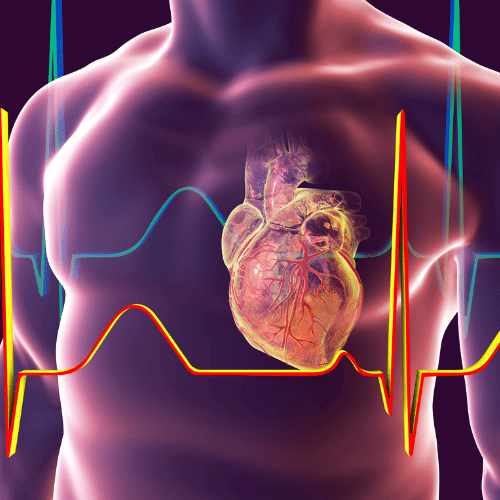
Medical Weight Loss Explained
A lot is said about medical weight loss but we are here to debunk the myths for you.
Cardiology > 1-Week ECG

Find Out More


If your symptoms occur only occasionally and cannot be detected during a routine heart exam or simple electrocardiogram (ECG), our specialists may recommend a 7-day ECG.
Our 1-week ECG allows your heartbeat to be monitored continuously over a week. This test will reveal how your heart responds to rest and activity, stress, and changes in medication.

Extended monitoring involves recording your heart’s electrical activity 24/7 for a full week, capturing irregularities that may not appear during a shorter test. This thorough approach helps in identifying issues such as arrhythmias, palpitations, or unexplained chest pain, providing your doctor with comprehensive data for an accurate diagnosis.
The device used for this test is wearable and discreet, ensuring that it doesn’t interfere with your daily activities. This allows you to continue with your normal routine while your heart is continuously monitored.
Early detection plays a crucial role in identifying potential heart issues before they escalate into more serious conditions. By conducting a thorough assessment and obtaining comprehensive data, you gain an in-depth understanding of your heart’s rhythm and electrical activity.
This extensive information not only highlights any irregularities but also provides valuable insights into your heart’s overall health. With this detailed data, personalised care becomes possible, allowing your healthcare provider to tailor treatments and lifestyle recommendations specifically to your individual needs and circumstances, ultimately supporting better heart health and well-being.


A 1-Week ECG is typically recommended for:
Here is how a 7-Day Heart Monitor can significantly enhance your approach to preventive care:
Use our online booking engine or book your test by giving us a call.
On the online booking engine select the “appointment type” you need.
You will be seen by one of our friendly doctors or trained clinicians.

Prepare for your ECG by wearing loose clothing, avoiding lotions on your chest, and informing your provider about any medications you are taking. Stay relaxed, avoid caffeine if possible, and follow your provider’s instructions to ensure accurate results.

A healthcare professional will attach electrodes to your chest and connect them to a small, portable recording device, which you will wear for 7 days. You will receive instructions on how to use the device, including how to press a button if you experience symptoms. Continue with your normal activities, but avoid anything that might dislodge the electrodes or damage the device. Keep a diary of any symptoms, such as chest pain, palpitations, or dizziness, and record the times they occur.

After 7 days, return to the clinic to have the device removed. The recorded data will be analysed by a healthcare professional to check for any abnormalities. If needed, gently cleanse your skin to remove any adhesive residue.
Incorporated
in 1998
Experienced doctors & a professional team
Registration
not needed
Up-to-date with the latest treatments & testing
Strictly
confidential
Experienced doctors & a professional team
Affordable private
health care
Transparent fee structure with no hidden charges
We work with experienced consultants & healthcare professionals who have received positive feedback from our patients, and with whom we have established long-term relationships.
Latest Episode
Tune in to our podcast to explore the world of healthcare and learn from distinguished special guests. We cover everything from preventative measures to cutting-edge treatments so that you can stay informed and up-to-date on health-related things.

A lot is said about medical weight loss but we are here to debunk the myths for you.

Tourist in London and need a GP? Get fast, private care for illnesses, injuries, or lost medication. No registration needed.

With NHS appointments harder to access, many people are turning to private GPs for faster, more convenient care.
Subscribe for latest updates & news


From same-day private GP and blood test appointments to visa medicals, a sexual and reproductive health clinic, and preventative health screenings, we are here to help.
Contact Us
Accepted Insurance Companies






Please note that Walk-in Clinic is a private medical centre & not an NHS service. Harley Walk-in Clinic Ltd company registration no. 07472804